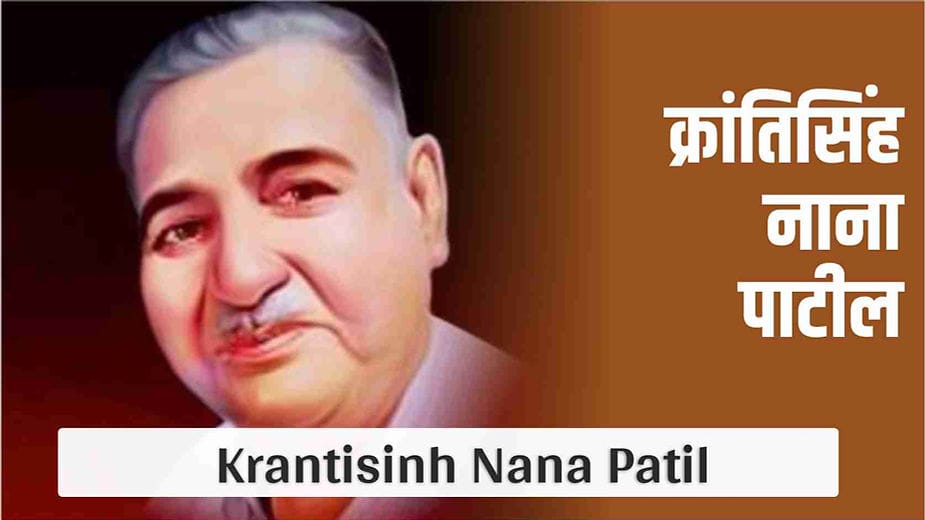
Intro
Krantisinh Nana Patil (August 3, 1900 – December 6, 1976) was a renowned revolutionary leader and social reformer in India. He was born in the village of Yede Machhindra in the Walwa taluka of Sangli district. From a young age, Nana Patil was blessed with a robust physique, which contributed to his strong personality and attracted people to him. After completing his education, he worked briefly as a Talathi but soon left his job to pursue social and political work.
Nana Patil actively participated in the 1930 Civil Disobedience Movement and became involved in the freedom struggle. His primary work was focused in the regions of Sangli and Satara. Nana Patil played a pivotal role in challenging the British Empire and founded the ‘Prati Sarkar’ (Parallel Government), which became a significant resistance movement. Under his leadership, ‘Prati Sarkar’ led a series of efforts in rural areas, reducing the British presence and establishing parallel structures for governance, justice, and supply management.
Nana Patil’s leadership during the freedom struggle earned him the title ‘Krantisinh’ (Revolutionary King). He formed the ‘Tufan Dal’ (Storm Brigade), which carried out attacks on British railways, postal services, and other government structures. The movement also worked on local issues, such as establishing people’s courts, food supply chains, and conflict resolution mechanisms. These actions created a fearsome reputation for the Prati Sarkar, which was widely known as the ‘Patri Sarkar’ in rural Maharashtra.
During the years 1942-1946, Nana Patil went underground, as the British government offered a reward for his capture. Despite multiple efforts by the British to arrest him, Nana Patil evaded capture. He remained underground until 1946, when India’s independence was imminent, and then emerged from hiding.
After independence, Nana Patil continued his work for social reform. He participated in the Samyukta Maharashtra Movement and worked through the Kisan Mazdoor Party and the Communist Party of India. He was elected to the Lok Sabha from the North Satara constituency in 1957 and from the Beed constituency in 1967. He became the first Member of Parliament to deliver a speech in Marathi in the Indian Parliament.
Nana Patil passed away on December 6, 1976, in Walwa. His final wish was to be cremated in Walwa, which was duly fulfilled. His legacy as a freedom fighter, social reformer, and leader of the marginalized communities continues to inspire future generations.

